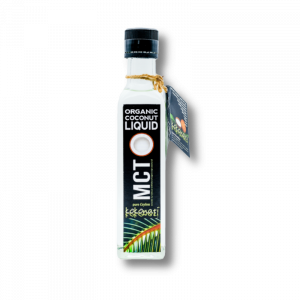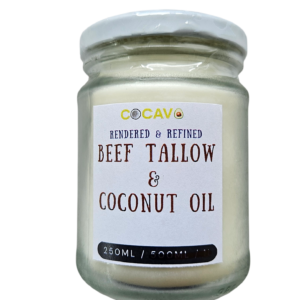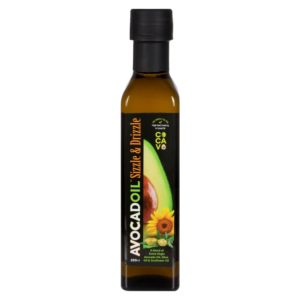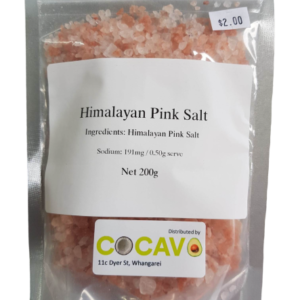THE BASICS
Over the past few decades, opinions on dietary fat has shifted considerably, and many have come to better appreciate the health benefits that certain types of fats can provide.
Recently, one unique product made entirely from saturated fats has been extolled by many for its health benefits: medium-chain triglyceride oil, better known as MCT oil.
- How does it differ from other types of fats?
- Does the science live up to the hype?
- Should you be adding it to your diet?
Fatty acids mainly consist of carbon and hydrogen atoms linked up in a chain. They come in different lengths that are determined by the number of carbon atoms they contain. Short–chain fatty acids have fewer than 6 carbon atoms, while long chain fatty acids have more than 12 carbons. Medium-chain triglycerides are a type of fatty acid that has between six and 12 carbon atoms. MCTs are found naturally in foods like coconut and palm kernel oils and full-fat dairy products; they’re also found in human breast milk.
MCT oil is derived from processing coconut or palm kernel oils, and it primarily consists of saturated fat. A tablespoon of MCT oil contains 14 grams of fat and 115 calories. It is mostly colourless, odourless, and flavourless and is a liquid at room temperature, so it can be consumed on its own or mixed into foods and beverages.
However, MCT oil has a low smoke point, so it should not be used for cooking. MCT oil can also be found in powder form that can then be mixed with a liquid to make a beverage, in the same way that protein powders are used to make protein shakes.
What makes MCT oil unique?
MCT oil is unique in the way that it’s digested, absorbed and used in the body. Most fatty acids are digested with the help of bile and enzymes from the pancreas. They’re then absorbed from the gastrointestinal tract, making their way into our lymphatic system and then into the bloodstream before finally making it to the liver.
This process for MCTs, on the other hand, is much more efficient: They don’t require bile or pancreatic enzymes to be digested and they are transported directly to the liver. Because of differences in the way MCTs are broken down in the body compared with LCTs, they are more likely to be used as an energy source and less likely to be stored as body fat.
Do MCT oils have health benefits?
MCT oils were first used in the clinical setting for people with gastrointestinal conditions that prevented them from properly digesting and absorbing long-chain fatty acids—including people with celiac disease, inflammatory bowel disease, irritable bowel disease and cystic fibrosis.
Because of their ability to serve as an efficient source of energy, they have become popular with athletes and people trying to lose weight when adopting diets such as the KETO Diet or LCHF Diet.
Should you take MCT oil?
MCT oil has proven benefits for people with gastrointestinal conditions that impair fat absorption. Beyond this, however, evidence of any health benefit of MCT oil is extremely modest (in the case of weight loss) or extremely weak or nonexistent (in most other health conditions). Therefore, use of MCT oil by most healthy adults is unlikely to have significant health benefits.
If you are still interested in trying MCT oil, it’s important to be mindful of how much you are taking. There are no clear guidelines on recommended daily doses, though consuming more than too much may result in gastrointestinal issues.
Gradually increasing the amount of MCT oil per day and spreading consumption throughout the day may help reduce these effects. MCT oil can be mixed into beverages like smoothies, coffee and tea or stirred into foods like hot cereals and soups. If you plan to start taking MCT oil, it’s important to speak with a healthcare provider about any benefits or negative effects it may provide.






